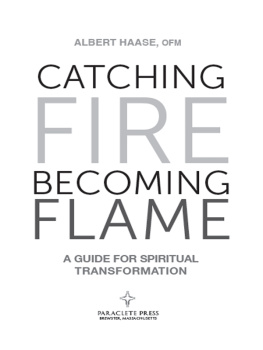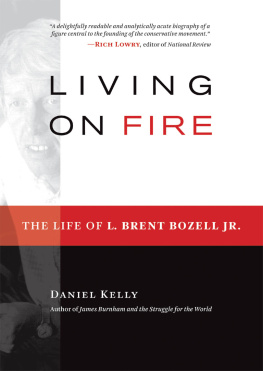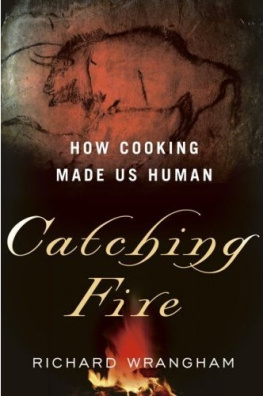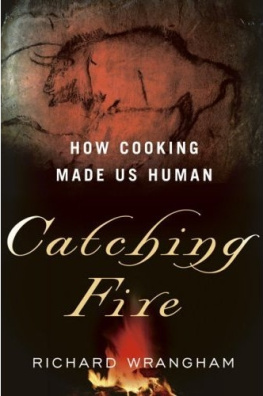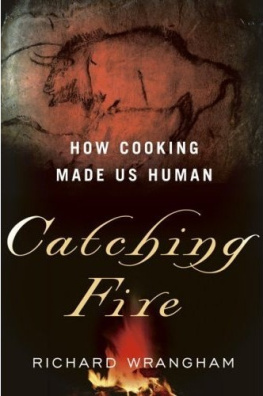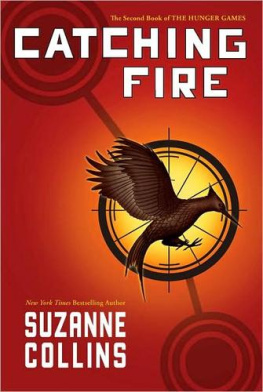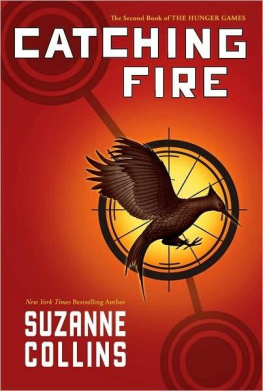Catching Fire :
A Translation Diary
Daniel Hahn
Catching Fire: A Translation Diary
For Diamela Eltit, and all the other writers
who have entrusted their precious work to me.
With thanks, and just occasional apologies.
Introduction
I am a literary translator.
OK, but what does that actually entail? Well, to put it most simply, my job is to read a book in language A, and write it again, in language B. I read with all the sensitivity, insight and analytical acumen I can bring to a text, and then I create a new thing, one thats identical to the original book, except for all the words. A new thing, to allow a book Ive loved to meet new readers.
One might imagine translation to be an intimidating thing, a sort of miracle of baffling complexity. But lets not start there. Because on the most basic level, translation is those two things, each of them simple enough, after all: translation is reading , and translation is writing . In a sense, theres really no more to it than that. Translators read a text, then write another text. Read something in Diamela Eltits Spanish, say, then write something in my English. Yes, doesnt that sound simple enough?
When translators work on a text, then, they are typically in negotiation with two languages, but they engage with each of them altogether differently. Language A is the one they consume. Language B, they produce. Inhale and exhale. Translators have to be at the very least brilliant readers in one, brilliant writers in the other. Each of these tasks can be demanding, obviously. You do whatever it takes to work out whats happening in this line of Greek, Tamil, Welsh; to see what it is, the something thats happening beyond the mere words of Language A; and then marshal all your sophisticated Language B skills to write that something, in Vietnamese, Korean, Dutch. So translators are hybrids a particularly strange kind of reader, with a particularly strange kind of writer. They read through a film of words to that thing that lies behind them and they write that thing. They read Die Prinzessin auf der Erbse and beyond that veil of words, they find a princess, and a pea. And they tell that story.
Of course, some translation actually is straight-forward. Flat, clich-ridden writing can be pretty easy. Characterless prose stuffed with set phrases can be easy. Lazy, unoriginal writing can be easy. Anyone can do that. (Which is why so many do, alas.) Translating a hackneyed phrase, easily slipping out one tired old Urdu idiom and comfortably slipping in a dull English equivalent to replace it, is, like any clich, money for old rope. But the good stuff is different. Good writing isnt about easily interchangeable set phrases. Thats not the bit that sets the translator, or the reader, alight. Good writing, the writing thats a joy to read or to translate, is new and unlikely, replacing clich and formula with something altogether fresh, brightly lit and alive.
Any well-chosen word, when pressed into service, will do many things at once. It may be conveying semantic data, but itll also be doing it in a certain way a tone of voice, diction with particular characteristics, the placing of stresses, the number of syllables. A whole web of cultural associations will trail after it. Echoes of other words. Sounds that help a reader understand what might not be explicit. Which is not to say that every writer does all these things deliberately and consciously, but if the writing is good then theyll be there. And if the translation is good, they will all still be there after weve had our way with it all those things will remain intact for a perceptive and curious new reader to discover. And unlike writing intended merely to convey data, artful literary writing is the kind where all those other things actually matter. So I want to keep them all in my translations. People think about translating as a process of de-coding, which it is; but its also about re- en coding. Not just deciphering a meaning, but reconstructing a new expression for it. And that second part, the intricate re-encoding, is usually the hard part and why I love it.
Sometimes the constraints were working to are particularly stringent. The whole novel has to be in iambic pentameter, or all of the words have to start with vowels, or its full of palindromes, or every eleventh word has to spell out the lyrics to The Battle Hymn of the Republic. It might have pictures, so the new text needs to be in dynamic conversation with them, too. Or maybe its just been written by Diamela Eltit. But even something thats not linguistically inventive or tricksy or showy or ludic will demand impossibilities from translation. We know this obviously about poetry which I seldom translate, being basically a coward but all prose that has artistry to it does just the same.
Even the very best translators will acknowledge this: essentially, theoretically, translation is impossible. Its one of the paradoxes inherent in literary translation, I think. Its easier to do it, or at least to do it well, once youve understood that in theory it cannot be done.
Which is fine. Im totally sanguine about this impossibility.
Ive seen maybe twenty Hamlets; some have been uninspired or incoherent, and some great, and with the great ones it is possible to assess and appreciate each for what it is, rather than the ways it falls short of impossible perfection. In reality, every performance is partial: a reading, an interpretation, and then an expression. Translations are just like that. They can be good, or very good, or really breathtakingly good but there will always be something that they arent doing. Your performance of Hamlet might be ground-breaking, but there will always be something in the part that you werent able to contain within it, however sophisticated and capacious your reading.
Each individual performer of a play script or musical score finds different things in that source, renders it in a unique way. Can a translation be perfect, include everything thats there? Of course it cant. No more can a performance of the Goldberg Variations be perfect , no more can a production of King Lear , no more can a poem. Does that mean we dont try? Theres no perfect translation of a single word, let alone a complex 48,000-word novel. Perfection isnt even the metric we should be using to think about it. How tiresome to be still stuck with the idea that every translation should be measured against some notional perfect translation and always, inevitably found wanting. Instead of measuring it against its own aspirations or, well, against not existing at all.
If I asked you to complete the phrase BLANK in Translation , you would just admit it replace the BLANK with the word Lost. Translation is so often measured in terms of loss. But I think my work allows things to be Found in translation. Freed in translation. Recreated in translation. Reimagined. Reborn. Rediscovered, restored, revived in translation.
Umberto Eco called translation, the art of failure, after all, didnt he? And fail we must, with every syllable, insofar as the fact that were changing it all means, you know, that were changing it but far better one great actors interpretation of Hamlet than never to see it performed even a single astonishing, imperfect time.
Like an actor performing a part a common metaphor for the work of a translator. Either that or were ventriloquists. Or ghost-writers, or bridge-builders, tightrope-walkers or conductors or smugglers or shadows or musical arrangers or chameleons. Every translator has a favourite metaphor to help to convey the rigours and joys of this strange profession, a metaphor that usefully captures the interpretative element, the flexibility, the dependent relation to the source text, the impossibilities and opportunities. None of these metaphors is more than a partial match, but they can be useful nonetheless.


